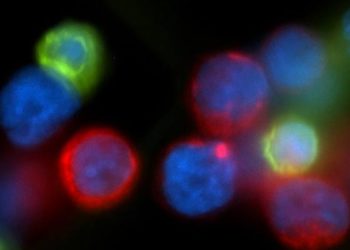Pancreatic cancer screening with MRI may benefit high-risk patients
1. Screening for pancreatic adenocarcinoma or precursor lesions using magnetic resonance (MR) imaging may be appropriate in selected patient populations, such as those with positive first-degree family history or genetic cancer syndromes, and may increase population-wide life expectancy.
Evidence Rating Level: 3 (Average)
Study Rundown: Pancreatic cancers, commonly pancreatic ductal adenocarcinomas, remain among the top 5 causes of cancer mortality in the United States, with most cases incurable at the time of diagnosis. To date, no effective screening strategies have been identified to facilitate earlier identification and intervention. Moreover, prior studies have suggested that population screening may actually identify clinically insignificant precursor lesions, causing net harm to the patient population due to the risk of surgical intervention. However, the potential effect of selected screening among subgroups with an increased risk of developing pancreatic cancers, such as those with positive first-degree family history or genetic mutations such as Peutz-Jeghers syndrome, BRCA mutations or hereditary pancreatitis, has not previously been explored. The current study computationally modeled pancreatic oncogenesis through both precursor solid and cystic lesion pathways and examined the outcomes of screening on subgroups within this theoretical population. Data were drawn from a review of the current literature regarding the mechanisms of tumor growth, the sensitivity and specificity of MR imaging-based screening, and the risks of surgical management. The model suggested that screening for pancreatic cancer among average risk individuals resulted in a small reduction in overall life expectancy due primarily to the mortality risks of surgical intervention of false-positive results. In contrast to this, screening among patients with even moderately elevated risk resulted in net life expectancy gains. The study was limited by the lack of real-world screening analysis and a lack of high-quality data regarding screening-specific test performance. Future studies—such as a cost-effectiveness analysis and clinical trials—are necessary to better understand how screening could best be implemented with regard to the age of initiation and termination, and to evaluate the effect of incorporating biomarkers into the screening paradigm.
Click to read the study in Radiology
Relevant Reading: Should Patients With a Strong Family History of Pancreatic Cancer Be Screened on a Periodic Basis for Cancer of the Pancreas?
In-Depth [computational model]: A Markov model of pancreatic oncogenesis was generated using data derived from the extant pancreatic cancer literature regarding the incidence of solid and cystic precursor lesions. The relative incidence, risk of development into pancreatic malignancy, and likelihood of detection on magnetic resonance imaging, including false-negative and false-positive data, was included in the model for each precursor among various populations ranging from average risk individuals to those with positive first-degree family history or genetic cancer syndromes. Each simulation followed a hypothetical group of 20-year-olds until 99 years of age, and multiple cycles were run to analyze the effect of screening in groups of increasing risks of pancreatic cancer development, tempered against the subsequent risk of surgical intervention as reported in the literature. The model incorporated a literature-derived, pooled sensitivity and specificity for MR-based screening of 56% and 97%, respectively, for both solid and cystic lesions. However, solid lesions were immediately treated in the model, while cystic lesions were stratified into low- and high-risk groups, warranting either continued follow-up or immediate management. Screening of an average risk population at age 50 resulted in a net loss of life expectancy of 3 days for men and 4 days for women. A critical threshold of individual risk of pancreatic cancer of 2.4 and 2.7 times that of the general population for men and women, respectively, was identified at which screening resulted in a net gain in life expectancy. This gain in life expectancy was found to increase in proportion to the individual’s relative risk of pancreatic cancer development. Sensitivity analysis found that the expected changes in life expectancy were most sensitive to variation in the specificity of MR imaging, the rate of surgical mortality, and the age of screening. Screening at age 50 in both men and women averted the greatest number of deaths, while variation in MR imaging specificity from 50-100% resulted in a variation of life expectancy ranging from -94 to +2 and -110 to +2 days for men and women, respectively.
More from this author: Quantitative MRI may differentiate true from pseudoprogression in glioblastoma, MR lymphangiography useful for evaluation of central lymphatic pathology, MRI may predict progression to early dementia in healthy elderly adults.
Image: PD
©2014 2 Minute Medicine, Inc. All rights reserved. No works may be reproduced without expressed written consent from 2 Minute Medicine, Inc. No article should be construed as medical advice and is not intended as such by the authors, editors, staff or by 2 Minute Medicine, Inc.





![Novel biodegradable sirolimus-eluting stents non-inferior to durable everolimus-eluting stents [BIOSCIENCE trial]](https://www.2minutemedicine.com/wp-content/uploads/2014/09/Taxus_stent_FDA-e1607803635904-75x75.jpg)

